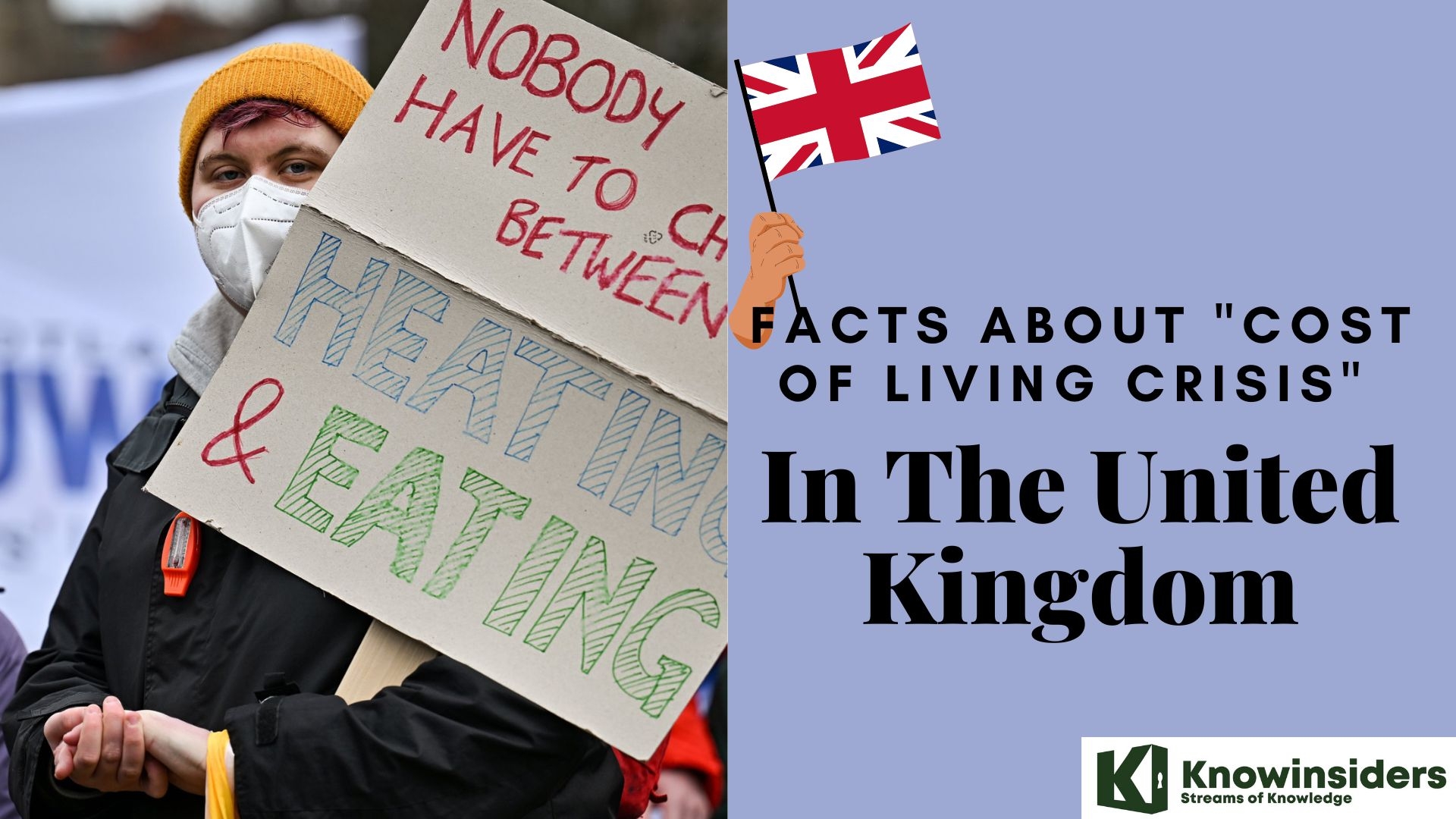5 Cheapest Supermarkets in the UK for Saving
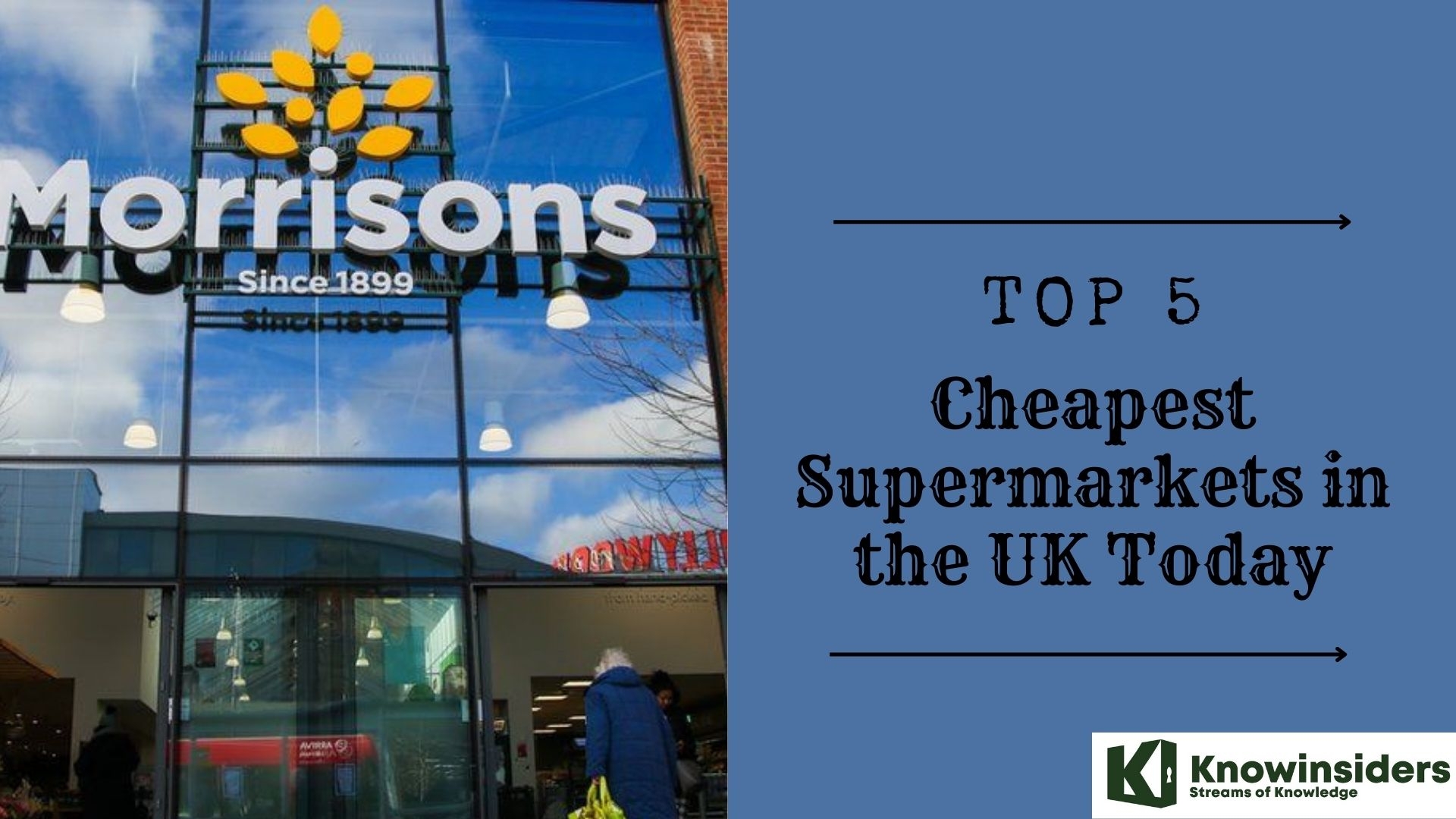 |
| Top 5 Cheapest Supermarkets in the UK Today - Knowinsiders.com |
| Table Of Content |
Which discount retailer do you support more—Lidl or Aldi? In either case, both supermarkets are well known for their fantastic deals and value. Nevertheless, the monthly analysis by Which? found that Aldi was the cheapest supermarket in the UK in July.
In its "cheapest supermarket price comparison," the consumer group "Which?" examined the price of a basket containing 47 items, including groceries and household necessities. Aldi, a discount retailer, defeated competitors like Lidl, Tesco, Morrisons, and Asda to claim the title of UK's cheapest supermarket.
Which? compared the costs of 50 household and grocery items to see who had the best deals. Aldi's basket cost £74.23, which is £12.54 less than Tesco and £16.91 less than Morrisons.
Here are the top 5 budget grocery stores in the UK right now.
What are the cheapest supermarkets in the United Kingdom Today?
1. Aldi
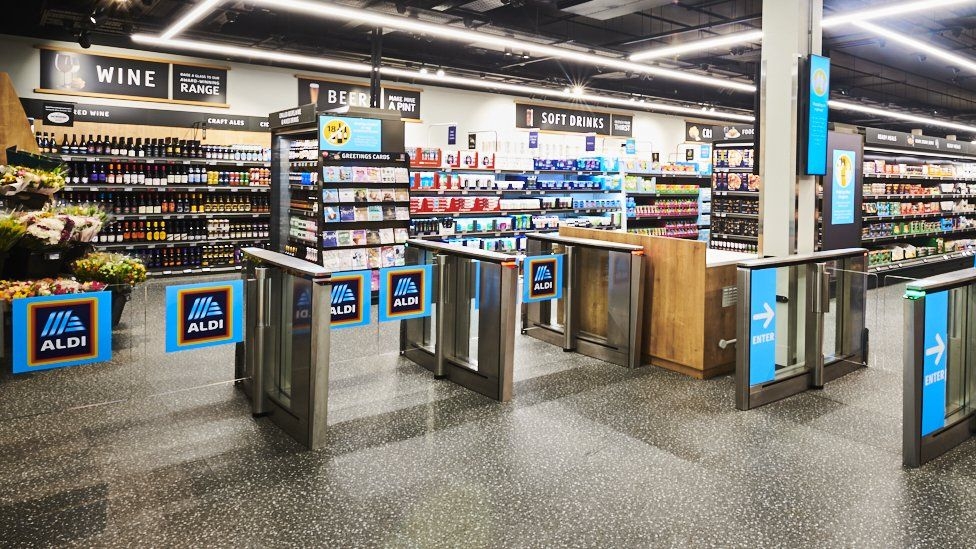 |
| Photo: BBC |
It has been said that a frog will quickly jump out of a pot of hot water, but if the pot is cold and is slowly heated, the frog may end up being cooked.
The same idea applies to our grocery bill. For a while, they may go up a little at a time without our awareness—just a few cents on the milk, maybe a dollar or two on that roast—until we suddenly feel the scorching heat.
After the east coast floods, cauliflower prices increased to as much as $8, and other necessities like Arnotts biscuits (up 5% to 10%) and the expectation of a 10% to 20% price increase for SPC baked beans and spaghetti only made matters worse.
Even in February, before the most recent round of price increases, a comparison of Coles and Woolworths websites on a year-over-year basis by the grocery price comparison website Frugl Grocery revealed an average increase of 2.6%, with some products like instant coffee and soft drinks rising by 50% to 90%.
After a mortgage or rent, food is the second-largest household expense, so even a 4-5% increase can add up to $500 more annually. It will be more crucial than ever to save a few dollars at the grocery store because mortgage payments have also recently increased significantly.
The top two categories of cost of living concerns for Australians were found to be groceries (51%) and petrol (59%) in a recent YouGov study that Aldi had commissioned. Nearly 40% of those surveyed plan to spend less on food this year.
According to Aldi's 2022 Price Report, which was published yesterday and is based on data analysis by PricewaterhouseCoopers, a grocery basket from Aldi is typically 15% less expensive than a basket of the cheapest comparable products from its major competitors. Based on a $192 weekly grocery budget, that could lead to a savings of $1555 per year.
The largest price differences for groceries are for chilled food (20%) and meat (18 per cent).
According to Aldi's report, its basket is up to 25% less expensive than name brands at its rivals, saving consumers $2468 annually.
The outcomes are comparable to a number of other comparisons: Consumer advocate Choice has discovered time and time again that Aldi is 7–10% less expensive than Coles and Woolworths.
That pretty much sums up the pricing strategies used by the three major supermarket chains: Aldi claims to be less expensive overall, while Coles and Woolies claim to offer more sales and discounts. This is why my top piece of advice is to visit multiple stores.
2. Asda
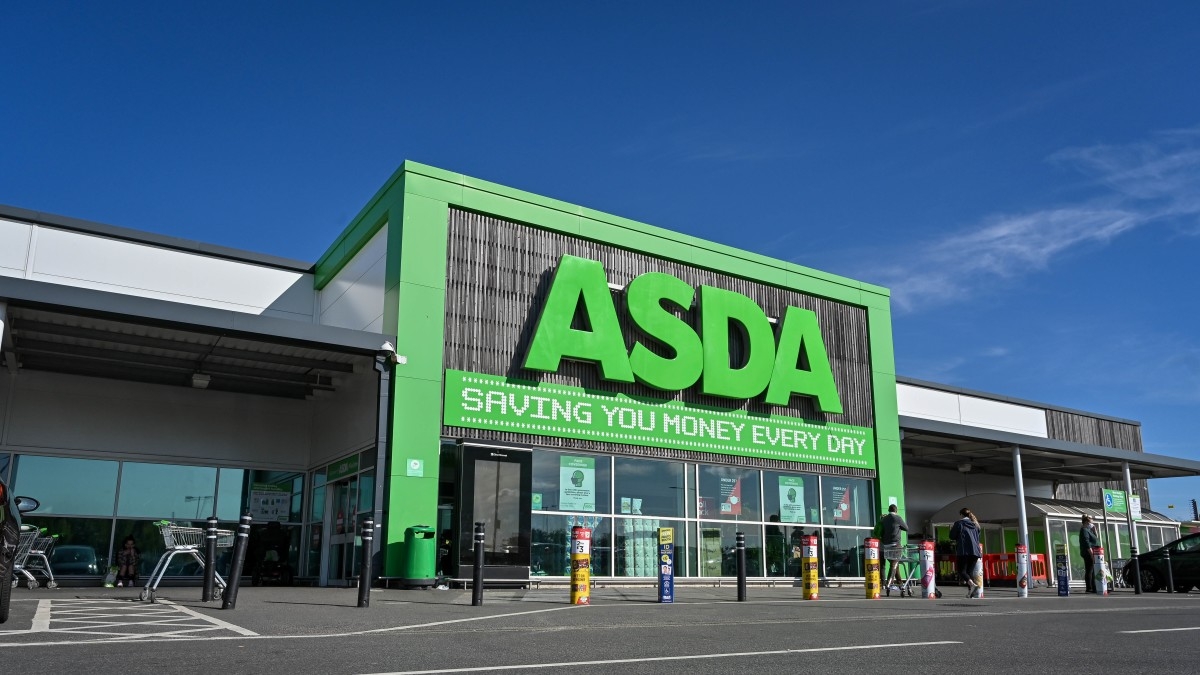 |
| Photo: Asda Corporate |
The British supermarket chain Asda Stores Ltd. Its main office is in Leeds, England. When the Asquith family and the Yorkshire-based Associated Dairies company merged their retail operations, the company was established in 1949. In the 1970s and 1980s, it expanded into Southern England and bought Allied Carpets, 61 sizable Gateway Supermarkets, and other companies like MFI Group. To focus on the supermarkets, it sold these acquisitions in the 1990s. It was traded on the London Stock Exchange up until 1999, when Walmart paid £6.7 billion to buy it. Between 2003 and 2014, Asda held the second-largest market share among British supermarket chains; after that, it slipped to third.
For the 25th year running, The Grocer, a trade journal, has named Asda the UK's most affordable major supermarket in its annual "Grocer Gold" industry awards.
The retailer won The Grocer's weekly price comparison survey 43 times out of a possible 50 times over the past 12 months, easily defeating competitors Tesco, Sainsbury's, and Morrisons. Due to its long history of offering customers low prices, Asda continues to be the only retailer to receive this pricing award.
Asda recently announced it is investing £90 million to freeze prices on 100 popular products for the remainder of the year and by introducing a new value range called "Just Essentials by Asda" that includes 300 cost-effective products.
For its "Express Delivery" service, which runs out of 300 stores and offers the full online range of more than 30,000 products for delivery in as little as an hour, Asda also won the e-commerce Initiative of the Year award.
Asda's co-owner Mohsin Issa said, "These awards recognize the efforts of thousands of colleagues across the company who are helping customers during these trying times. We are pleased to once again hold the title of major supermarket with the lowest prices, and we will continue to work hard to keep prices as low as we can to help our customers stretch their grocery budgets further.
Along with providing excellent value, we also make investments in product quality to improve both the in-store and online shopping experiences for customers. In fact, our "Express Delivery" service won the award for best e-commerce initiative of the year.
Additionally, Colette McSorley, the store manager of Edinburgh Jewel, is a finalist for the Store Manager of the Year award, for which we are incredibly proud.
3. Sainsbury’s
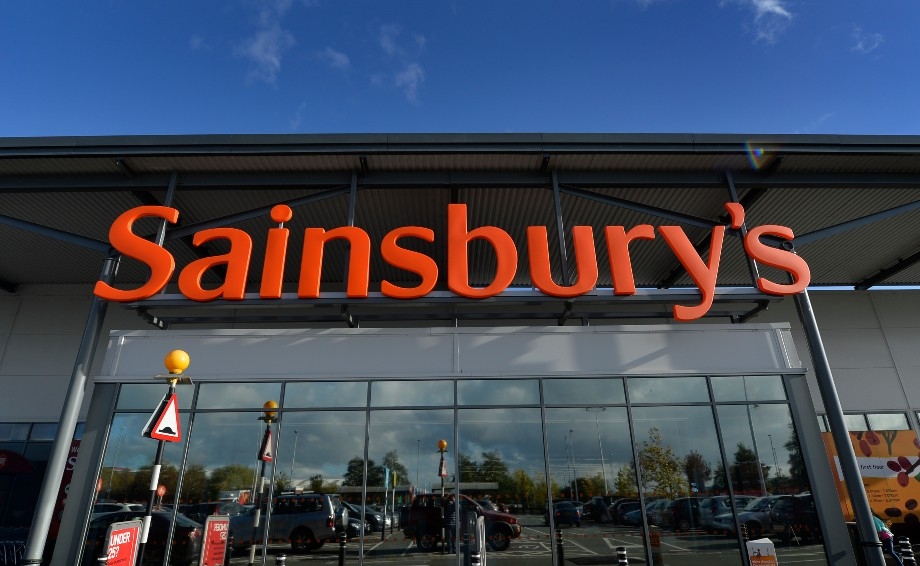 |
| Photo: Sainsbury's |
With a 14.9% market share in the supermarket industry, J Sainsbury plc, doing business as Sainsbury's, is the second-largest chain of supermarkets in the United Kingdom.
With a shop in Drury Lane, London, John James Sainsbury founded the business in 1869, and for the majority of the 20th century, it was the biggest grocery retailer in the UK. In 1995, Tesco overtook Sainsbury's, which has since been ranked second or third. From 2003 to 2014 and again in 2019, Asda overtook Tesco as the market leader. Due to worries about higher consumer prices, the Competition and Markets Authority blocked a proposed merger with Asda in 2018.
J Sainsbury plc, the holding company, is divided into Sainsbury's Supermarkets Ltd (which includes convenience stores), Sainsbury's Bank, and Argos. The sovereign wealth fund of Qatar, the Qatar Investment Authority, which owns 14.99% of the business as of 2021, is the company's largest overall shareholder. It is a part of the FTSE 100 Index and is traded on the London Stock Exchange.
Along with building its own sites, Sainsbury's added Bell's Stores, Jackson's Stores, JB Beaumont, and SL Shaw Ltd. to its portfolio of convenience stores. At first, Sainsbury's kept the iconic Bells, Jacksons, and Beaumont branding. For instance, remodeled stores were given the name Sainsbury's at Bells. These were essentially Sainsbury's Local stores with a new fascia that still had some characteristics of the previous local chain. Unrenovated stores still offered Sainsbury's own brand products, pricing, and some point of sale, but they did not accept Nectar cards. They also retained the original brand and logo. Additionally, the previous websites were kept but with Sainsbury's branding. But starting on May 4, 2007, every single one of these acquired stores was completely changed over to the Sainsbury's Local fascia.
Chief Executive Justin King made plans to concentrate on growing the company's convenience stores public in July 2013.
4. Tesco
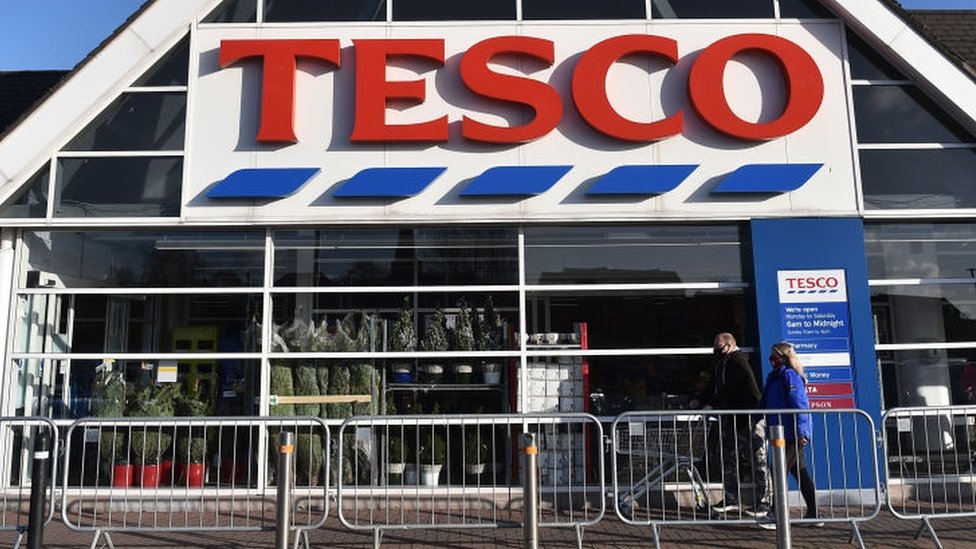 |
| Photo: Getty Images |
Tesco PLC is a multinational British retailer of groceries and other goods with its headquarters in Welwyn Garden City, England. It was the third-largest retailer globally in terms of gross sales in 2011 and the ninth-largest globally in terms of revenues. It has stores in Slovakia, the Czech Republic, Hungary, the UK, Ireland, and the Czech Republic. In the UK, where it holds a market share of about 28.4%, it is the market leader in groceries.
In 1919, Jack Cohen established Tesco as a collection of market stalls in London's Hackney neighborhood. After Cohen bought a shipment of tea from T. E. Stockwell in 1924, he first used the name Tesco by combining those three initials with the first two letters of his last name. The first Tesco store opened in Burnt Oak, Barnet, in 1931. His company quickly grew, and by 1939, he owned over 100 Tesco locations nationwide.
Since the early 1990s, Tesco has expanded internationally, operating in 11 other nations. The business left the US in 2013, but as of 2018, it is still expanding overseas. Tesco has expanded its business since the 1960s, entering new markets like book, clothing, electronics, furniture, toys, gasoline, software, financial services, telecom, and internet services. Tesco tried to appeal to a variety of social groups in the 1990s by repositioning itself as a downmarket, high-volume, low-cost retailer with its affordable "Tesco Value" range (launched in 1993) and upscale "Tesco Finest" range.
Tesco is a member of the FTSE 100 Index and is listed on the London Stock Exchange.
The business left the US in 2013, but as of 2018, it is still expanding overseas. By forming joint ventures with local partners, like the one Tesco formed with Charoen Pokphand in Thailand to create Tesco Lotus, and by appointing a very high percentage of locals to management positions, Tesco's international expansion strategy has responded to the need to be sensitive to local expectations in other countries. As part of its strategy, it also makes modest acquisitions. For instance, during the 2005–2006 fiscal year, it bought a company in South Korea, one in Dubai, United Arab Emirates, one in Poland, and one in Japan. On September 7, 2015, Tesco partnered with a Canadian pension fund and Temasek Holdings to sell its South Korean company, Homeplus, to MBK Partners.
5. Morrisons
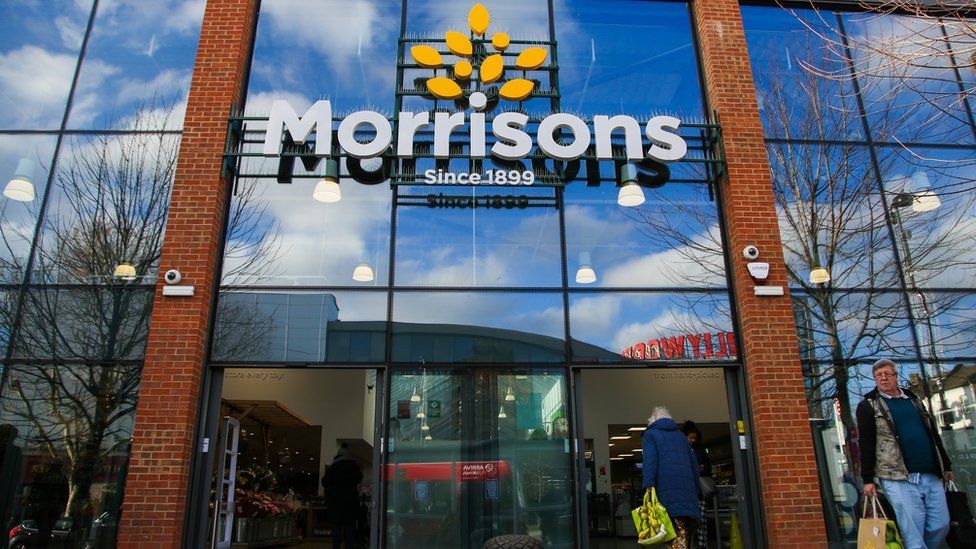 |
| Photo: Getty Images |
The fourth-largest supermarket chain in the UK is Wm Morrison Supermarkets, doing business as Morrisons. The company operated 497 supermarkets in England, Wales, Scotland, and Gibraltar as of 2021. Bradford, West Yorkshire, England serves as the company's headquarters.
It was first established in 1899 as an egg and butter stall in Rawson Market, Bradford, England, hence the abbreviation Wm Morrison. Prior to 2004, the majority of Morrisons' store locations were concentrated in the North of England. However, following Safeway's acquisition that same year, the company's presence in Wales, Scotland, and the South of England significantly increased.
Morrisons had 110,000 employees as of February 2021, and they provided service to about 11 million customers each week.
Morrisons' market share in August 2017 was 10.14%, a decrease of 0.86% from the previous year. It was lower than Aldi (7%), but higher than Tesco (27.8%), Sainsbury's (15.8%), and Asda (15.3%).
Up until October 2021, when Clayton, Dubilier & Rice acquired the business, it was listed on the London Stock Exchange.
After the M Local stores operated by the supermarket failed, Morrisons entered the convenience market again in 2016 with a new chain of five trial forecourt stores operating under the Morrisons Daily brand in collaboration with Motor Fuel Group. A new partnership was established with Rontec to open 40 stores across the company's forecourts shortly after this trial ended in 2017, with the stores closing.
Morrisons Daily stores run by MPK Garages and Essar started doing business under a similar arrangement in 2019.
In 2018, Morrisons and SandpiperCI reached an agreement for the franchise and wholesale supply of 43 Nisa-branded Morrisons Daily convenience stores in the Channel Islands. By 2022, SandpiperCI had converted 19 of its stores in the Channel Islands, including the former Benest's of Millbrook location at Lisbon House, to the Morrisons Daily format.
Following a successful trial of 30 conversions in the months before, Morrisons and McColl's committed to converting 300 existing McColl's convenience stores into Morrisons Daily stores over the course of the following three years through a partnership agreement in 2021. This agreement, first reached in 2017, extends Morrisons' role as McColl's sole supplier through at least 2027. Morrisons currently provides goods to more than 1,200 McColl stores.
For use in stores of its wholesale clients, Morrisons Daily stores, and two MPK Garages forecourt stores that operate with Safeway Daily branding, the Safeway brand was revived by Morrisons in 2016.
 10 Pocket Tips for Booking a Cheapest Hotel Room Around the World 10 Pocket Tips for Booking a Cheapest Hotel Room Around the World Finding a cheap hotel room is fairly easy, but it also carries risks and disadvantages. Take a look at these simple tips for booking a ... |
 US Farmland Prices To Soar: 10 Biggest Owners and Cheapest & Most Expensive Places to Buy US Farmland Prices To Soar: 10 Biggest Owners and Cheapest & Most Expensive Places to Buy The sale of land in the US is attracting worldwide attention after billionaire Bill Gates became the country's biggest owner of farmland. Check out the ... |
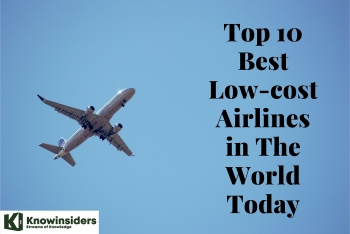 Top 10 Best Low-cost Airlines in The World Today Top 10 Best Low-cost Airlines in The World Today Here are the lists of the top 10 cheapest airlines and the best budget airlines in the world that will help you search for flights ... |
 Top 9 Cheapest Electric Cars 2023 to Buy in The US Top 9 Cheapest Electric Cars 2023 to Buy in The US If you’re in the American market for an EV in 2022/2023, we explore some of your choices in this post. Here are the 10 cheapest ... |

